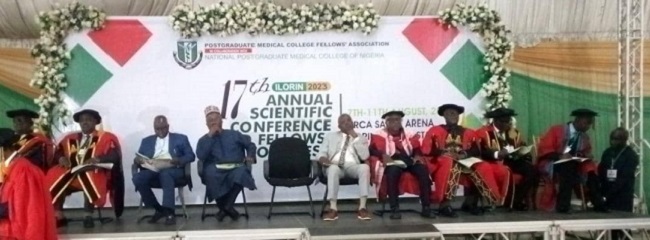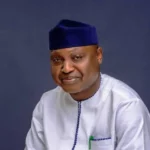A body of fellows of the National Postgraduate Medical College of Nigeria has identified the need for the government and stakeholders to strengthen the healthcare delivery system across the country as a panacea to reduce the exodus of health professionals, otherwise called ‘Japa syndrome’.
Speaking at the 17th annual scientific conference and all fellows’ (ASCAF) congress of the Postgraduate Medical College Fellows’ Association, tagged, Ilorin 2023 and themed, Improving health care financing in Nigeria, the College president, Professor Akinsanya Osibogun, identified poor remuneration and lack of adequate infrastructure as major challenges confronting medical practitioners and health care delivery system in the country.
He, thus, advocated for strategic measures and collaboration by all stakeholders to make the country’s health sector better.
“Our challenge these days is not finding enough people to train. Younger doctors are migrating out of the country. We just heard that out of 100 per cent of students that graduated, 50 per cent of them are already out of the country.
“We need those younger doctors to be available for us to train them to become specialists and remain in Nigeria. So, together we can do that.”
Osibogun, who said that there is a global market for health professionals, added that “people are looking for them in the UK, Canada, and all over the world.
“For us to retain our skilled professionals; we must put in place enough incentives, both financial and non-financial that have to do with equipment and facilities to deliver their services effectively and save lives.
“We know that government alone can not do it. So, all stakeholders have to put in place mechanisms to improve the health sector and retain people we have trained in the country. The only way to retain them is by improving on their work environment so that all equipment and tools they need to render service would be available.
“Medical practitioners have to be well renumerated and the environment must be conducive to keep them in the country.
“As a country, we need to come up with plans to ensure that required equipment are available geopolitically, statewide or at each ward in the country.”
In his welcome address, chairman, Local Organizing Committee, Professor Foluwasayo Emmanuel Ologe, said that the theme of the ASCAF conference and the sub-themes; ‘Technology in Medicine and Public Private Partnership’ are apt and timely.
He said professionals and scholars were carefully selected to do justice to the topics of the conference.
Ologe noted that after a rigorous deliberation on burning issues; it is expected that, “the outcome of the conference would impact significantly on the healthcare system of Nigeria.”
The chairman, Information, Publicity and Protocol Committee, Professor Adekunle Bashiru Okeshina, said that the National Postgraduate Medical College of Nigeria is saddled with the responsibility of training specialists so that the students can perform academically and professionally.
“We train them to be professionally sound and you know health care has a unique need for every human being to be taken care of.
“When you’re talking of medical tourism, this can be reduced when we have our own trained specialists that can handle health care delivery.
“The essence of this conference is to deliberate on how we can maximize the output of the little resources we have. As we are going through the economic crisis, the money is there but it is not directed properly to the right channel. Thus, with the little money that we have, how can we maximize the output in terms of health care delivery to our people.”
READ ALSO FROM NIGERIAN TRIBUNE






